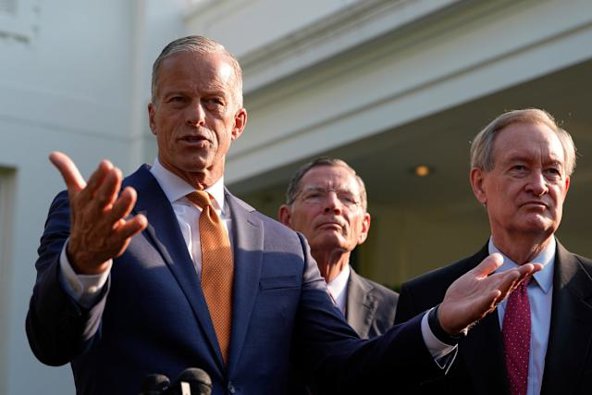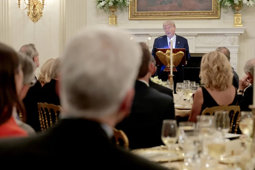
U.S. Debates Response as Israel-Iran Conflict Grows
Senate and House leaders weigh U.S. involvement and supplemental aid as the Israel-Iran conflict escalates and bipartisan support for Israel holds.
Senate, House Voice Strong Support for Israel Amid Middle East Tensions
As the conflict between Israel and Iran intensifies, top congressional leaders and the White House are navigating a delicate path regarding the U.S. response. Senate Majority Leader John Thune, R-S.D., emphasized the need for Iran to return to the negotiating table, stating, "Dismantling Iran's nuclear program is what this is all about." Thune explained that resolving the standoff could occur diplomatically or, if necessary, by force, but cautioned against direct U.S. military involvement unless absolutely required.
Thune’s remarks come amid ongoing missile exchanges between Israel and Iran, following Israel’s recent strike on critical Iranian infrastructure. While damage to Iran’s fortified Fordow nuclear plant was limited, the situation remains volatile. Thune pointed out, "If the Iranians are smart, they'll come to the table and negotiate this in a way in which they choose to end or disavow their nuclear program." He also expressed hope for internal change in Iran, noting signs of instability not seen since the 1979 revolution.
Congress Discusses Aid and Limits on U.S. Military Role
Bipartisan resolutions are circulating on Capitol Hill, calling for congressional approval before any military action against Iran. Lawmakers are debating the balance between supporting Israel and avoiding deeper U.S. involvement in the region. President Donald Trump continues to urge Iran’s leaders toward negotiations, while asserting U.S. control over the region’s airspace and closely monitoring developments from the White House.
Representative Mario Diaz-Balart, R-Fla., who chairs the key appropriations subcommittee on foreign aid, affirmed that Congress would maintain robust bipartisan support for Israel, especially if the crisis escalates. Diaz-Balart highlighted last year’s overwhelming vote authorizing over $26 billion in emergency U.S. funding for Israel and humanitarian efforts in the region, despite ongoing skepticism about foreign aid within parts of Congress.
“There’s very, very, very strong bipartisan support, in particular Republican support, for Israel, and I think again, what we are seeing is Israel doing what they need to do to protect themselves,” Diaz-Balart stated, adding that additional aid would receive broad backing if necessary. He noted that House appropriations for the next fiscal year are being crafted with Israel’s security in mind, and any future supplemental funding would likely see unified support.
As missile exchanges between Israel and Iran continue, congressional leaders remain vigilant about the need for further action. Thune underscored the stakes: “I think, for right now, everybody is wishing the Israelis success and, again, hoping that the U.S. doesn't have to get further involved, but realizing what's at stake, and not only for Israel but for the region and the world.”
With tensions high and diplomatic efforts ongoing, Congress and the White House are poised to respond as the crisis develops, balancing support for Israel, regional stability, and the limits of U.S. military involvement.






